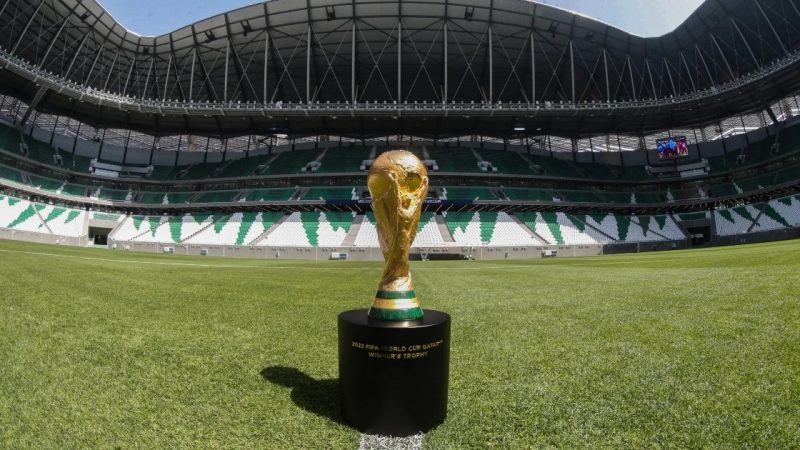Qatari authorities have yet to respond to Doha News’ request for a comment on the matter.
An Israeli diplomatic source told AFP on Friday that there will be no direct flights between Doha and Tel Aviv during the World Cup, amid statements confirming access for Israeli football fans into the Gulf state.
Israel’s Foreign Minister Yair Lapid announced on Thursday that Israeli football fans will be able to fly to Qatar for the major sporting event, describing it as “a political achievement”.
“A political achievement that fills the hearts of the fans! After hard and joint work with Benny Gantz [defence minister], and Hili Tropper [sports minister] has matured a happy summary – Israelis will be able to fly to watch the World Cup in Qatar,” tweeted Lapid.
However, Lapid failed to elaborate on the so-called achievements. As per policies by the global footballing body, FIFA requires all World Cup host nations to grant access without discrimination to all ticket holders.
Meanwhile, the French news agency quoted the three Israeli ministers, saying FIFA confirmed that Israeli citizens will be able to enter the Gulf state for the major sporting event in November.
The occupying state has not qualified for the World Cup since 1970.
The Israeli official also said this year’s World Cup in Qatar is opening “the door to a new warm relationship”, though fell short of adding more details. In another tweet, Gantz welcomed the move, saying that “Qatar is a country of international importance, which also contributes to maintaining stability” in the region.
Qatari authorities have yet to respond to Doha News’ request for a comment on the matter, however Doha has been vocal in its objection of any and all relations with the occupying state.
With no diplomatic relations between Doha and Tel Aviv, there are currently no direct flights between the two.
No to normalisation
In recent years, Qatar has publicised its staunch refusal to normalise with the Zionist state, unlike Bahrain and the UAE, both of which normalised ties under the Abraham Accord in 2020.
While Qatar did open a trade mission for exchanges between Doha and Tel Aviv in the late 1990’s after “hopeful” Madrid-Oslo negotiations, the office was later shut down in the 2000’s following the war on Gaza.
At least 1,440 Palestinians were killed in that brutal onslaught.
The Gulf state has also committed to the 2002 Arab Peace Initiative, which was adopted by the Gulf Cooperation Council (GCC) at the time. The initiative states that member countries shall refrain from normalising with Israel until it fully withdraws from lands occupied in 1967.
In recent weeks, Doha has renewed its support of Palestinians, repeatedly condemning ongoing human rights violations by Israeli occupation forces against the indigenous people.
Most recently, the killing of veteran Al Jazeera correspondent Shireen Abu Akleh drew condemnation from Qataris across the board, including Amir Sheikh Tamim bin Hamad Al Thani.
Hindering sports development in Palestine
In addition to ongoing land theft by Israel, Palestinian athletes face ongoing obstacles when participating in competitions. Palestinian footballers struggle to find places to play due to destruction of facilities across Palestinian lands by Israeli forces.
In 2019, Israel essentially cancelled the Palestine Cup by denying Gazan players travel permits. This has been highlighted by rights groups as just one example of various flagrant human rights abuses committed by the occupying state in an effort to isolate Palestinians both at home and abroad.
Israel’s restrictions on the movement of Palestinians are highly repressive, with at least 700 obstacles placed around the West Bank and up to 140 checkpoints.
Palestinians and activists from all around the world have long accused FIFA of ignoring letters to suspend the Israeli Football Association’s membership.







